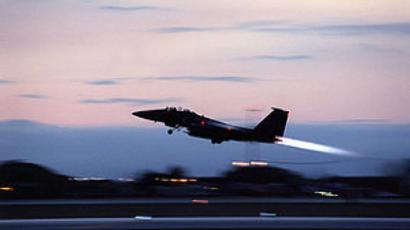NATO in Moscow - historic talks
NATO experts have gathered in Moscow to gauge Russia's stance on the alliance's new strategy. The meeting is being led by the former US Secretary of State Madeleine Albright.
The former US Secretary of State is visiting Moscow as the leader of the NATO Group of Wise Men. The group arrived in Moscow on Tuesday with an aim to discuss the NATO strategy with Russian officials. This is the first such discussion in history.
On February 10th and 11th, the twelve NATO representatives and their leader held talks with Foreign Minister Sergey Lavrov and the leadership of the Russian Security Council, as well as meeting with State Duma deputies, scientists and experts.
On Thursday, February 11th, Madeleine Albright delivered a speech and held a question and answer session at the Moscow State University of International Relations.
Madeleine Albright talked to the students mainly about NATO’s new strategic concept and how important it is for Russia to be involved in the discussion, and to keep the lines of communication between NATO and Russia open.
She also said that the last strategic concept was written in 1999, over a decade ago, and now it is necessary to focus on shared problems such as terrorism, piracy, climate change and the need for cooperation between Russia and NATO.
“The truth is that NATO members feel threatened by many of the same lawless forces that concern Russia, including terrorism, violent extremism, the spread of nuclear weapons, drug trafficking and crime,” Albright said. “And that’s why the alliance has invited Russia to work co-operatively to confront and to defeat these dangers, and it’s why I believe we should look to the future not as rivals but as partners.”
In her speech, the former US Secretary of State made many references to the words of NATO Secretary General Anders Fogh Rasmussen, who visited Russia in December, emphasizing his strong point that NATO will never attack Russia.
Madeleine Albright said that this is a new world, now the threats from 10 years ago are not here anymore, and Russia and NATO no longer need to have this conflict; they no longer need to be worried about one another.
She also touched on some sensitive issues, mentioning Georgia’s possible inclusion into NATO as a contentious issue. Albright stated that Russia and NATO are not going to agree on every point, but they need to be able to talk about things in order to go forward into the future.
Konstantin Kosachev, the head of the Russian State Duma Foreign Affairs Committee, says he believes that NATO understands better now that threats to NATO and to global security come from outside – they do not come from Europe and they do not come from Russia.
“And in order to combat these threats and challenges, one needs to have a much better cooperation beyond the borders of the alliance in comparison with the period until now. And we do appreciate the consultations and discussions we had today with Madeleine Albright and her colleagues in the Group,” Kosachev said.
As for Russia’s new military doctrine, nothing is mentioned in it about NATO as a threat towards Russia, Konstantin Kosachev has added.
“What we are concerned about and what we consider as a threat is NATO’s infrastructure coming closer to Russian borders – this is a significant difference – and NATO’s ambition to play a global role,” Kosachev said.













